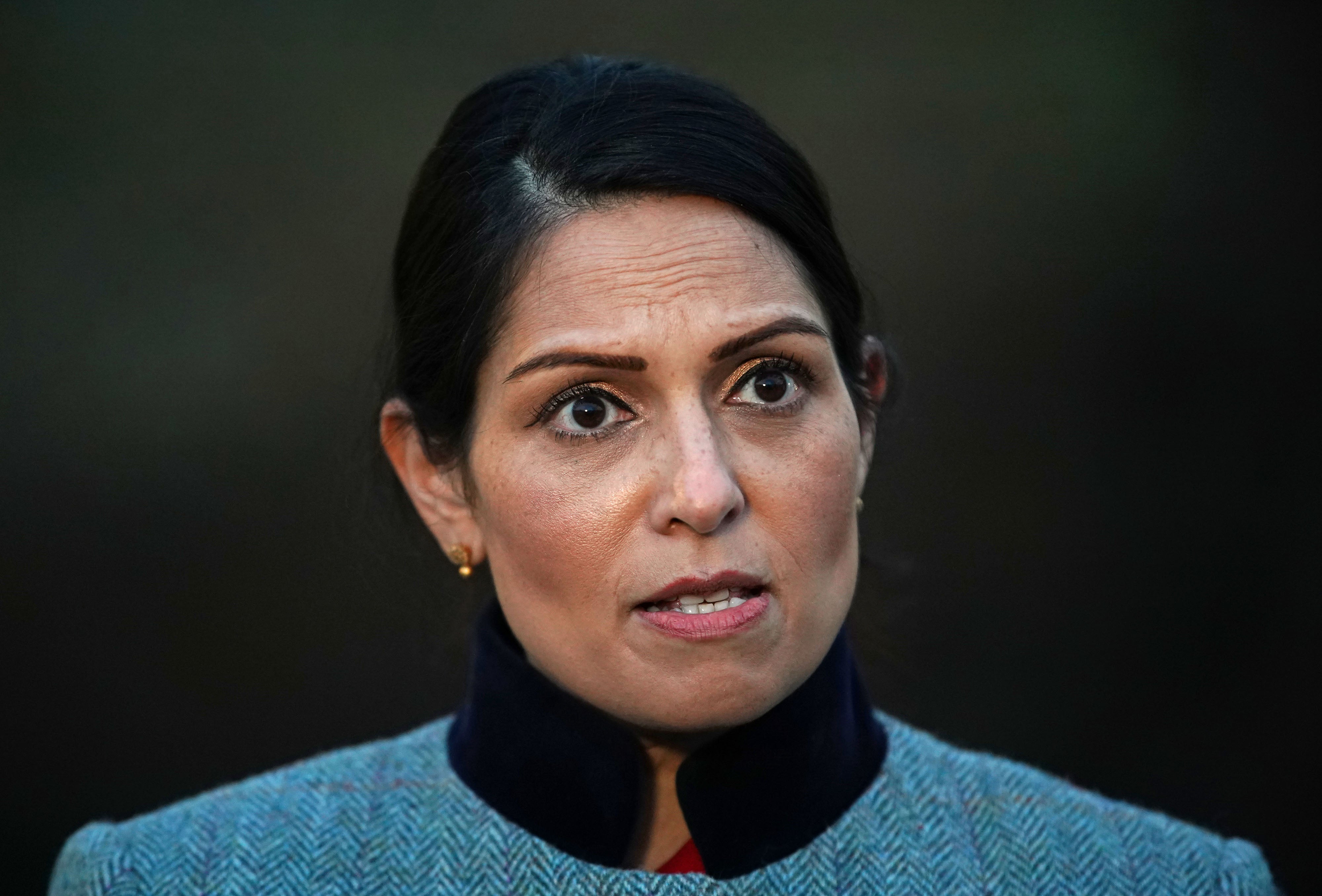Deal with Rwanda not comparable with Australia’s offshore policy, says Patel
The Government announced a new immigration policy that will see asylum seekers who cross the Channel in small boats sent to Rwanda for processing.

The migration partnership between Rwanda and the UK is not “comparable” with the type of arrangement Australia has with Nauru and Papua New Guinea, the Home Secretary has said.
Speaking during a press conference in Kigali, Rwanda, Priti Patel said the UK believes in investing in the Eastern African country and that Australia’s offshore processing policy is not comparable.
It comes as the Government announced a new immigration policy that will see asylum seekers who cross the Channel in small boats sent to Rwanda for processing.
The proposals have drawn fierce criticism from opposition parties, with shadow home secretary Yvette Cooper describing them as “extortionate as well as unworkable and unethical”.
On Twitter, Ms Cooper also cited Australian Refugee Council offshoring figures, which show “3,127 people were sent to Papua New Guinea/ Nauru since 2013 at cost to Australian taxpayer of AUS$10 billion”.
She added: “That’s £1.7m per person. Home Office claims current cost of processing asylum per person in UK is £12k. That would make offshore processing over a hundred of times more expensive.
“And would mean cost for UK taxpayer of sending people to Rwanda would be billions. Where is that money coming from?”
Since 2012, asylum seekers arriving in Australia by boat without valid visas have been subject to offshore processing in the Republic of Nauru (Nauru) or on Manus Island in Papua New Guinea.
Offshore processing involves asylum seekers being detained and undergoing health, security and identity checks in Australia, before being forcibly transferred to Nauru or Papa New Guinea at the earliest possible opportunity and undergoing refugee status determination in those countries.
During the press conference in Kigali, the Home Secretary was pressed on reports of self-harming and suicides in Australia’s offshoring centres.
Ms Patel said: “Australia is not comparable. This is not the type of arrangement that Australia had. Australia is a sovereign country, obviously had its own arrangement.
“It is fair to say our teams have been working through facilities here. You have heard me mention in my opening remarks as well the technical experience that we are bringing.
“We believe in investing in Rwanda. We are very open about that. We believe that’s the right thing to do. Yes, on the economic development side, but also on the migration partnership.”
The Home Secretary added that she and Rwandan foreign minister Vincent Biruta “stand here today absolutely committed to changing some of the norms around the broken global migration system” because “for too long, other countries and, by the way, naysayers, just sit on their hands and have been watching people die”.
Conservative former Cabinet minister David Davis has in the past been highly critical of Australia’s offshoring policy.
Speaking in the House of Commons in February as MPs debated the Nationality and Borders Bill, which contains the powers to transport migrants overseas, Mr Davis urged the chamber to look at “what actually happened to Australia when they adopted that approach in 2013”.
He said: “It meant children, slavery victims and tortured survivors could be detained offshore. The Refugee Council of Australia has documented gut-wrenching stories of sexual, physical and mental abuse in the processing facilities.”
Mr Davis also claimed to have spoken to former Australian prime minister Tony Abbott, saying: “To be frank, we didn’t talk primarily about this policy. I asked him what was most effective.
“I am afraid he rather agreed with what the spokesman for the SNP said. He said the really effective policy was pushback.”
Bookmark popover
Removed from bookmarks